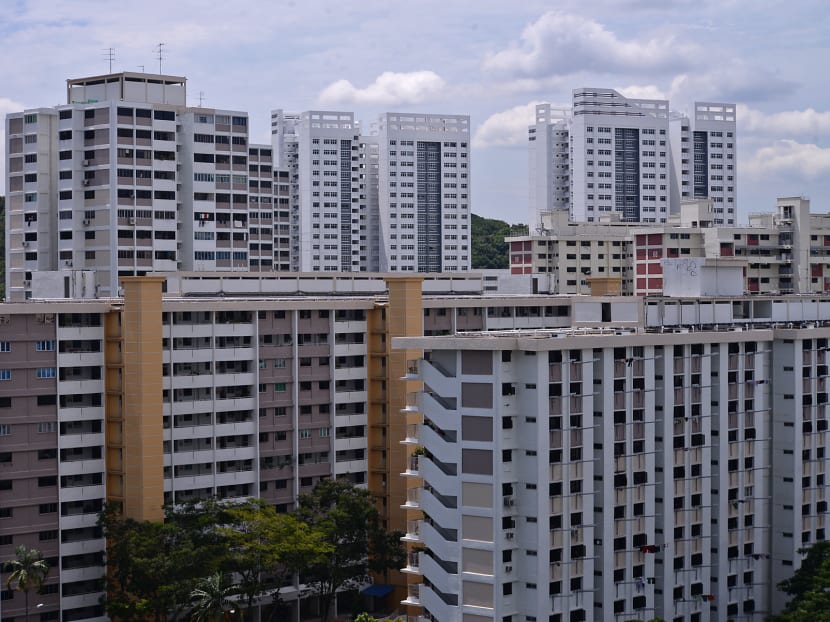Devil’s in the details, but flat owners should not expect windfall from new HDB scheme: Analysts
SINGAPORE — The housing initiatives announced at the National Day Rally — particularly the new Voluntary Early Redevelopment Scheme (Vers) — will go some way to reassure homeowners whose leases are running down, said some analysts interviewed by TODAY.
SINGAPORE — The housing initiatives announced at the National Day Rally — particularly the new Voluntary Early Redevelopment Scheme (Vers) — will go some way to reassure homeowners whose leases are running down, said some analysts interviewed by TODAY.
Nevertheless, the devil is in the details, and whether the scheme will provide a viable solution to the hotly-debated lease decay issue remains to be seen, they said.
With Prime Minister Lee Hsien Loong's speech, the Government has laid out a "visible" programme for Housing and Development Board (HDB) flat owners for the future of their homes, said CIMB economist Song Seng Wun, who added that public housing has been the backbone of Singapore's wealth creation.
Vers, which Mr Lee said would start about 20 years from now, will see residents of precincts that are about 70 years into their 99-year leases voting on whether they would like the Government to buy back the flats. The Government will compensate them — at terms less generous than the Selective Enbloc Redevelopment Scheme (Sers), which is compulsory — and help them get another flat to live in.
While Member of Parliament Alex Yam felt Vers would address some concerns of those living in older flats, Mr Lee Sze Teck, head of research at property firm Huttons Asia, felt it would not reduce the uncertainty homeowners face as the scheme is subject to lessees voting in favour of it.
The issue of HDB flat leases became a hot topic after a blog post by National Development Minister Lawrence Wong last year. He had cautioned that not all old flats will be eligible for Sers, and those not chosen will be returned to the state when the 99-year lease matures.
Analysts said the response to Vers will depend on details announced after policymakers have worked out how to select the precinct, pace the redevelopments out and the Government's specific terms of offer, among others.
"It boils down to how (Vers) will be implemented, and how much flat owners will be compensated. What is the threshold needed to secure approval for the scheme?" said ZACD Group executive director Nicholas Mak.
"Will compensation be enough to buy another flat to give the flat owner the same standard of living?"
Both Mr Song and Mr Yam felt current regulations on collective sales for the private sector could serve as a blueprint for Vers.
But HDB owners should not equate Vers with a collective sale of private property and hope for a windfall, said Mr Yam, who chairs the National Development government parliamentary committee.
"There are, I think, going to be a lot more conditions tied in with Vers… We didn't go through so many cooling measures to try to dampen the private en bloc market so Vers can take over," he said.
That Vers will start only in about 20 years means that "time is on our hands", said Mr Song.
"All the various stakeholders can basically give their view of how things may work or how they wish things can be done," he added.
Pricing of the flats will be the main sticking point, said Singapore University of Social Sciences' (SUSS) associate professor of economics Walter Theseira.
International Property Advisor chief executive Ku Swee Yong said Vers could have unintended effects on market sentiment.
Mr Ku said prospective sellers of older HDB flats whose leases are dwindling might start to ask for a higher selling price — now that some uncertainty has been addressed — and drive up resale prices as a result.
Mr Yam was also concerned that the acrimony among residents in some private en bloc attempts may spill over to public housing estates going through Vers.
VERS COULD PAY FOR ITSELF: ACADEMIC
Analysts are, however, not too worried about Vers' impact on state coffers.
Associate Professor Sing Tien Foo, who is the Director of the Institute of Real Estate Studies at the National University of Singapore (NUS) believes there will not be a large influx of HDB estates that agree to take up Vers at any one point in time.
The Government also generates revenue through redevelopment when it sells new units on a new 99-year lease, said Dr Theseira.
"The programme could well pay for itself if prices paid are not unreasonably high," he said.
Some flat owners felt relieved to get a better idea of what happens when their leases are near expiry, but a few continued to have doubts if they would still have a roof over their heads when the time comes.
Administrative assistant manager Angel Sui, 45, who lives in a 52-year-old flat on Circuit Road, said she would probably shelve her plans to relocate and wait to have a go at Vers. She only wishes for Vers to happen sooner.
Mr Low Mong Seng, 34, worried that the compensation under Vers may not allow flat owners to purchase a flat of a comparable size. This would be a problem for bigger households, said the swim coach, whose three-room flat in Block 95, Lorong 4 Toa Payoh, has less than 50 years left on its lease. ADDITIONAL REPORTING BY LOUISA TANG











